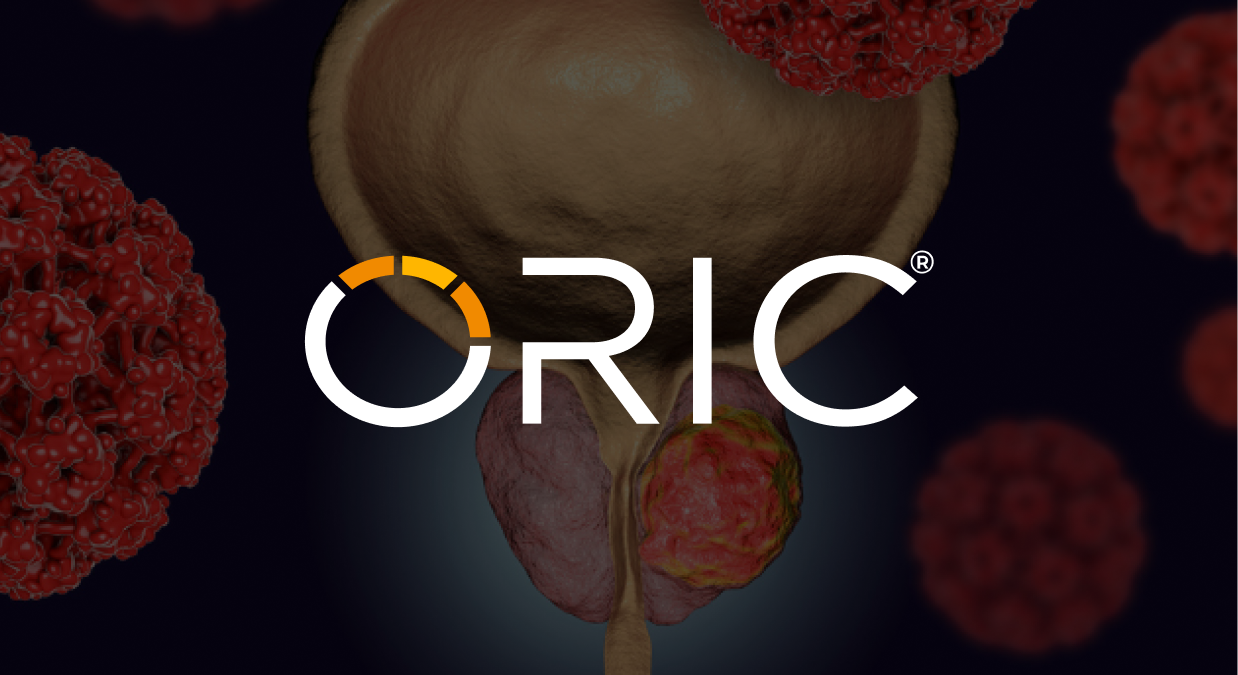ORIC® Pharmaceuticals Reports Promising Preliminary Efficacy & Safety Data From Ongoing Phase 1b Trial of ORIC-944 In Combination With AR Inhibitors For The Treatment Of Metastatic Castration-Resistant Prostate Cancer (mCRPC)
ORIC-944 shows PSA response in mCRPC with mild side effects in Phase 1b trial.
Breaking News
May 30, 2025
Simantini Singh Deo

ORIC Pharmaceuticals, a clinical-stage oncology company focused on overcoming treatment resistance in cancer, has shared promising early results from its ongoing Phase 1b trial of ORIC-944. This drug is being studied in combination with androgen receptor (AR) inhibitors for patients with metastatic castration-resistant prostate cancer (mCRPC).
The Phase 1b trial is evaluating ORIC-944 when used with either ERLEADA (apalutamide) from Johnson & Johnson or NUBEQA (darolutamide) from Bayer. Eligible patients had previously received treatment with an androgen receptor pathway inhibitor and up to one round of chemotherapy. The main goal of the study is to determine the recommended dose for Phase 2, while also assessing the safety, tolerability, drug behavior in the body (pharmacokinetics), and early signs of effectiveness.
Pratik S. Multani, M.D., chief medical officer, said, “These ORIC-944 combination data demonstrate substantial clinical activity with both AR inhibitors, apalutamide and darolutamide, through early measures of efficacy (PSA50 and PSA90 response rates) and a safety profile consisting almost entirely of mild to moderate GI related adverse events, making it highly suitable for potential long term dosing.”
Jacob M. Chacko, M.D., president and chief executive officer, stated, “The data generated to date continue to demonstrate the potential of ORIC-944 to be a best-in-class PRC2 inhibitor that may benefit a broad range of patients with prostate cancer. The efficacy and safety data presented today compare favorably to other PRC2 inhibitor data presented earlier this year. We look forward to subsequent updates from the dose exploration and dose optimization portion of the Phase 1b trial over the next three quarters as we move towards initiating our first global registrational trial in 1H 2026.”
So far, the study has included 17 mCRPC patients who had undergone a median of three previous treatments. These included therapies like abiraterone and chemotherapy, though androgen deprivation and earlier generation AR therapies were not included in that count. Patients received ORIC-944 once daily in doses of 400 mg, 600 mg, or 800 mg. Depending on the treatment arm, it was combined with either 240 mg of apalutamide once daily or 600 mg of darolutamide twice daily. PSA response data is current as of May 9, 2025.
Of the 17 patients, 10 experienced a 50% or greater drop in prostate-specific antigen (PSA) levels, a key indicator of treatment effectiveness. Eight of these responses were confirmed a month later, making the confirmed PSA50 response rate 47%. Additionally, 4 patients (24%) achieved a PSA90 response, and all of these responses were confirmed. PSA responses were seen across all dosage levels and were similar regardless of which AR inhibitor was used. Most patients are continuing treatment, with several approaching or exceeding one year of therapy. The trial is still exploring different dose levels.
In terms of safety, the treatment has been generally well tolerated. Most side effects were mild or moderate (Grade 1 or 2) and were consistent with the known effects of PRC2 and AR inhibition. Diarrhea was the most common side effect, reported in over half of the patients (9 out of 17), though only one case was considered serious (Grade 3). There have been no treatment-related severe (Grade 4 or 5) adverse events.
ORIC expects to finish the current phase of the dose exploration by mid-2025. After that, the company plans to test two selected dose levels for each combination therapy in the next part of the trial, set for the second half of 2025. The results will help determine which dose to use in the company’s first global Phase 3 registrational trial in mCRPC, which is expected to begin in the first half of 2026.
